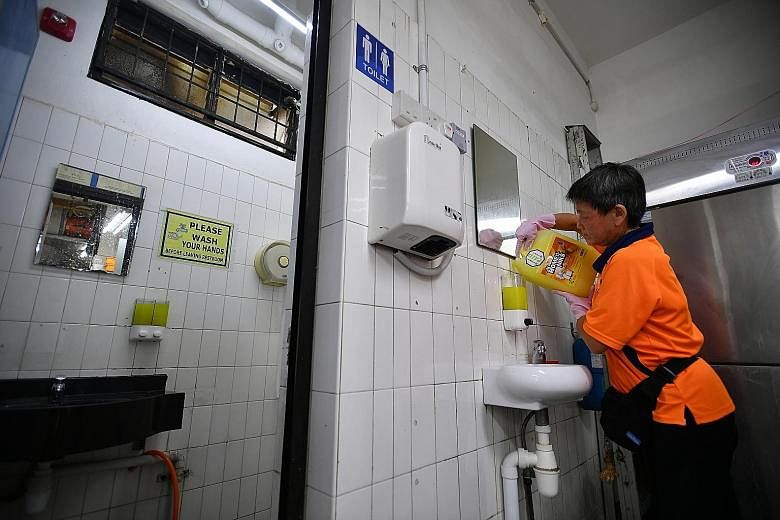Efforts to raise the standards of public hygiene at hawker centres, coffee shops and public toilets will be ramped up from tomorrow, when restrictions to curb the spread of Covid-19 are eased and people can eat out.
The National Environment Agency (NEA) said yesterday that diners at hawker centres or coffee shops will be reminded by safe distancing ambassadors to properly dispose of their tissue paper and wet wipes, and to return their trays and crockery to centralised stations.
Public toilet owners and operators also have to ensure the facilities have basic amenities such as liquid hand soap, toilet paper and litter bins, NEA added.
"Cleanliness and good standards of hygiene are our first line of defence against evolving public health threats," said Minister for the Environment and Water Resources Masagos Zulkifli, who oversees NEA.
The agency assured diners that cleaners will not lose their jobs when diners return their trays, saying cleaners will have tasks to carry out at the tray return points or centralised dishwashing stations.
Used tissue paper or wet wipes - which Mr Masagos previously described as being "little biohazards" - can be contaminated as they are often used to cover a person's nose and mouth when coughing or sneezing, or to wipe respiratory discharge and sputum.
Contact with such contaminated droplets is considered the primary way the coronavirus is transmitted.
"When used tissues or wet wipes are left around, they can pose a risk to others who touch them directly, or who touch the surfaces where they were placed," NEA said.
By disposing of them as well as returning used crockery and trays, the risk of transmission to cleaners is minimised, making their job easier.
Clean public toilets are another key aspect of public health, it added. In dining establishments, clean toilets help to ensure food hygiene is not compromised. To this end, NEA will introduce a toilet improvement programme for coffee shops and hawker centres with ageing infrastructure, the agency said.
More details will be given later this year.

